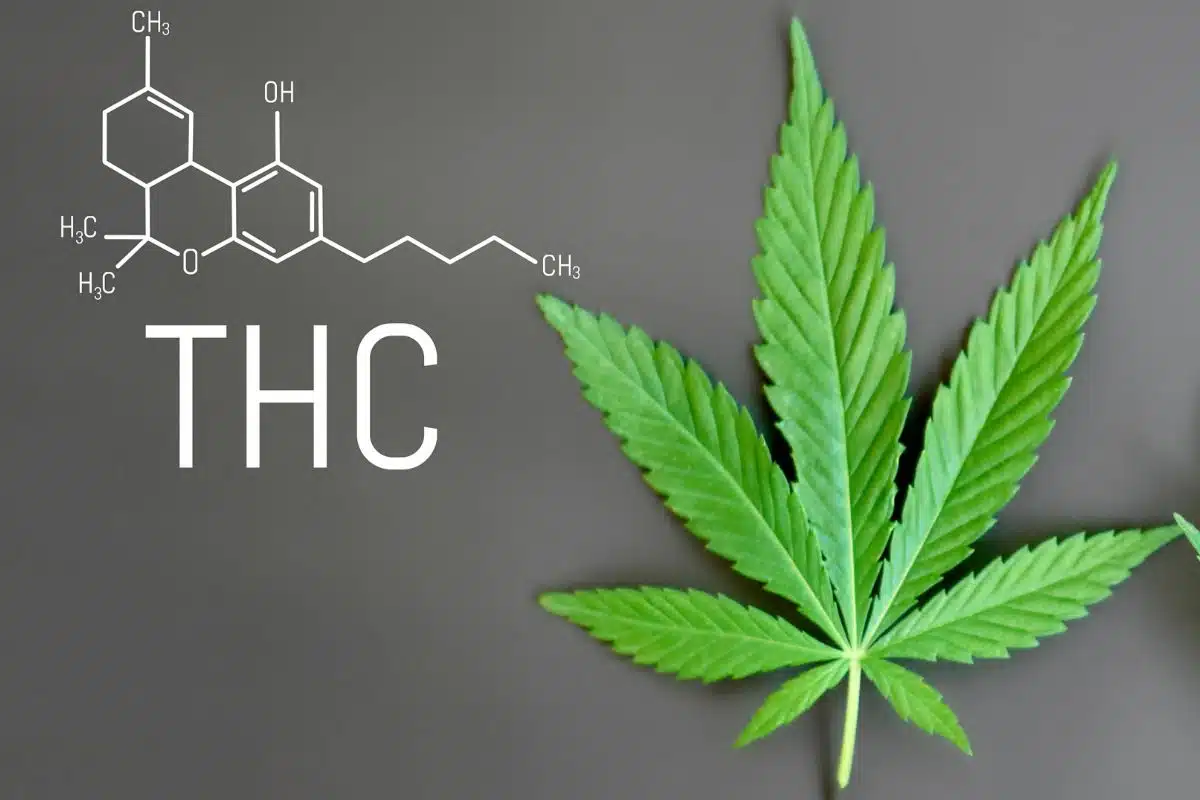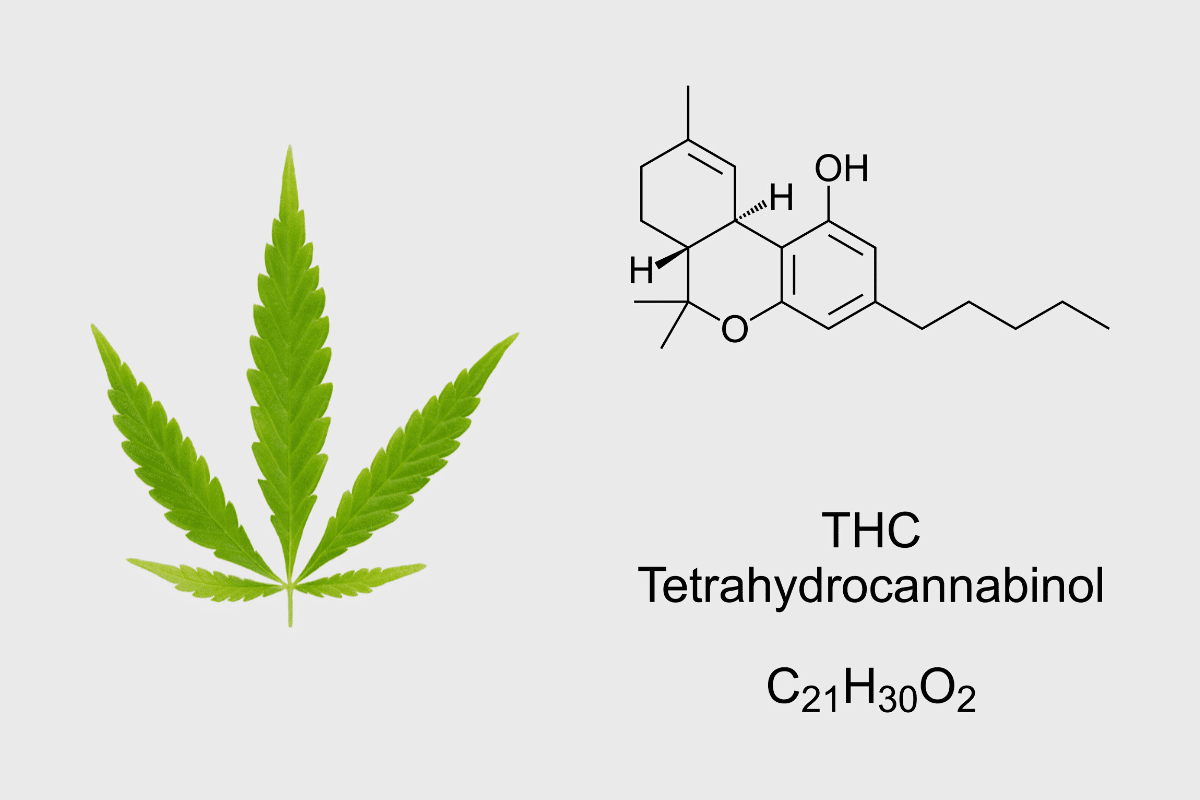How to Get Delta 9 Out of Your System Fast: Effective Detox Strategies
Kicking THC out of your system is kinda like unlocking a secret level in a video game, especially if you’ve got a **drug test** lurking around the corner, or you’re itching to get your brain firing on all cylinders for something big at work. THC is what shoots you to the moon when you’re enjoying some herb, but sometimes, it sticks around in your body longer than you’d want. The time THC decides to crash at your place depends on a few things, like how often you’re hitting the joint, your body’s own rhythm, and how fast your body’s cleanup crew gets to work. Buckle up, ’cause you’re about to learn some neat tricks on flushing out THC, stuff a lot of folks still have no clue about. Want to ace that test or just crave feeling sharp again? Bingo, you’re in the right spot. Why hang around here? Finding out how to give THC the boot could totally flip the game for you!
Table of contents
To expedite the process of getting THC out of your system, it’s essential to understand how your body processes this compound. Typically, THC is stored in fat cells, and its metabolites are gradually eliminated through urine and feces. You might come across quick fixes or detox regimens online, but the effectiveness of such methods can vary significantly from person to person.
Employing natural detoxification methods and lifestyle changes can be a safer and more reliable way to cleanse your system of THC. This includes staying hydrated, eating a balanced diet, exercising regularly, and allowing ample time for your body to metabolize and eliminate the substance. Remember, there is no one-size-fits-all solution, and the most effective approach is often the most health-conscious one.
Understanding Delta 9 and THC Metabolism
Before delving into specifics, it’s essential to understand that the metabolism of Delta 9 THC involves complex biological processes influencing how quickly it is processed and eliminated from your body.
The Science of Delta 9 THC
Delta 9 THC, the primary psychoactive cannabinoid found in cannabis, impacts your body by interacting with the endocannabinoid system. Upon entering your bloodstream, THC is readily available to exert its effects, which include intoxication and the therapeutic benefits associated with cannabis.
How THC works in your system:
- Binds to cannabinoid receptors (CB1 and CB2) in the brain and body.
- Triggers various physiological processes.
- THC’s psychoactive effects emerge from its affinity for brain receptors.
Metabolism and THC Metabolites
Once THC enters your liver, it’s broken down by enzymes into several THC metabolites. The primary metabolic pathways involve:
- Cytochrome P450 enzymes facilitating the conversion of THC to 11-hydroxy-THC, a potent psychoactive compound.
- Further oxidation to THC-COOH, the primary non-psychoactive metabolite detected in drug tests.
Key points of THC metabolism:
- THC is lipophilic, meaning it’s stored in fat tissues, leading to a variable elimination half-life.
- The presence of THCCOOH in your system can linger, depending solely on the frequency and amount of cannabis use.
- Consumables like CBD may influence THC’s breakdown, albeit having no direct psychoactive effects.
The metabolism of THC is individualized, rotating around how your liver’s enzymes metabolically process these cannabinoids. Consequently, the rate of THC clearance from your system varies significantly between individuals.
Factors Influencing THC Clearance

Several factors determine how quickly delta-9-tetrahydrocannabinol (THC), the active compound in cannabis, is metabolized and cleared from your system. Understanding these factors can help you anticipate the rate of clearance and take steps accordingly.
Body Composition and Age
Body Fat Percent and Weight: THC is lipophilic, meaning it tends to combine with or dissolve in fats or lipids. Therefore, your body fat percentage has a significant influence on THC clearance. Higher body fat can lead to a longer duration of THC retention in your system, as it gets stored in fat tissues and is released slowly.
Age: As you age, metabolic rate often decreases. This slowdown can affect how quickly THC is metabolized. Younger individuals typically have faster metabolism, which can lead to quicker THC clearance.
Frequency and Potency of Usage
Frequency of Use: If you use cannabis frequently, THC accumulates in your body, which can prolong the detection time. An occasional user will clear THC more rapidly than a regular user, due to less accumulation of THC in the fat cells.
Potency: The THC potency of the cannabis you consume affects how long it stays in your system. Higher potency products contain more THC, which means there is more THC that needs to be metabolized and excreted. Thus, consuming products with high levels of THC can extend the clearance time.
Testing for Delta 9 THC

Understanding the various types of drug tests and their detection windows is crucial for determining how long Delta 9 THC can remain detectable in your system.
Types of Drug Tests
Urine Test: The most common form of drug testing, urine tests can identify Delta 9 THC metabolites which are byproducts after your body processes the substance.
Blood Test: Blood tests can detect the presence of Delta 9 THC in your bloodstream, indicating recent use.
Hair Test: This test involves analyzing hair follicles where traces of Delta 9 THC can be found months after use.
Saliva Test: Saliva tests can detect recent usage as Delta 9 THC lingers in the oral fluid.
Detection Windows in Different Tests
- Urine Tests:
- Occasional users: 3 days
- Moderate users: 5-7 days
- Heavy users: 10-15 days
- Chronic users: 30 days or more
- Blood Tests: Typically up to 24 hours, but can vary depending on the frequency and amount of use.
- Hair Tests: Can detect THC for up to 90 days, as drug metabolites are deposited in the hair shaft.
- Saliva Tests: Generally detect Delta 9 THC for 24 to 48 hours after use.
Note that these detection windows are averages and can be influenced by factors like metabolism, body mass, and hydration levels. Be aware of the possibility of a false positive, which can sometimes occur with certain drug tests.
Strategies to Expedite Clearance

To quickly eliminate Delta-9 THC from your system, focusing on hydration and diet along with exercise and managing body fat prove essential. These methods can enhance the body’s natural detoxification processes.
Hydration and Diet
Maintaining proper hydration is crucial for facilitating the excretion of Delta-9 THC metabolites. Your kidneys rely on adequate water intake to eliminate waste from your blood. Aim for at least 8-10 glasses of water per day to support kidney function and speed up the clearance of THC.
Regarding diet, prioritize a balanced diet rich in fiber, which can help bind to the metabolites and expedite their excretion through the digestive system. Include foods like:
- Whole grains
- Leafy greens
- Fruits and vegetables
Exercise and Body Fat Reduction
THC is lipophilic, meaning it’s stored in body fat. Reducing body fat can decrease THC stores, so regular exercise can be beneficial. Engage consistently in both cardio and strength training, as they can help burn fat and boost metabolism.
Remember that THC metabolites are excreted through sweat, so exercise not only reduces fat but also directly aids in elimination. The ideal exercise routine should involve:
- 30 minutes of cardio at least 5 days a week
- Strength training sessions twice a week
Always consult a healthcare professional before starting any new dietary or exercise regimen, especially if you’re aiming for rapid changes to detoxify substances from your body.
Consumption Methods and Their Impacts

When seeking to remove delta 9 from your system, understanding the impact of different consumption methods on the duration it stays in your body is crucial.
Ingestion vs. Inhalation
Ingestion typically involves edibles, such as gummies, that deliver delta 9-tetrahydrocannabinol (THC) via the digestive system. When you ingest a cannabis product like a hemp-infused brownie or candy, the THC is metabolized by your liver, creating a metabolite called 11-hydroxy-THC, which is potent and long-lasting. This method results in a delayed onset, but the effects can last much longer.
In contrast, inhalation methods, such as smoking marijuana use or vaping hemp flower, introduce THC directly into your bloodstream through the lungs. The effects appear almost immediately but tend to dissipate faster compared to when THC is ingested. This is because inhalation avoids the first-pass metabolism by the liver which makes the removal of delta 9 from your system typically quicker after inhalation than ingestion.
Varieties of Cannabis Products
Cannabis products come in various forms and the type you use can impact how quickly your body can clear THC. Inhaled products from marijuana use, like joints or vape pens, lead to a quicker peak in THC blood levels. In contrast, ingested products—such as cannabis edibles or gummies—result in a more gradual increase in THC levels. However, because your body must process these through your digestive system, the THC from edibles stays in your system longer.
It’s important to note that products derived from hemp, which legally must contain less than 0.3% THC, may also have an impact, although significantly lesser, on the duration THC is detectable in your system. Regardless of whether you’re using a hemp-based or marijuana-based product, the removal process of THC from your body will still depend largely on the method of consumption and your individual metabolism.
Legal and Health Considerations
When considering how to eliminate delta-9-tetrahydrocannabinol (THC) from your system, it’s crucial to understand the legal landscape and potential health impacts involved.
Understanding THC Legal Status
As of the 2018 Farm Bill, hemp-derived compounds containing less than 0.3% THC are legal federally. However, the legality of delta-9, the primary psychoactive compound in cannabis, varies by state. Before attempting to detox from THC, ensure you’re aware of your local laws to avoid legal repercussions. For guidance on legislation, you might find the medicinal applications of THC and relevant legal precedents discussed in academic literature.
Cannabis, Health, and Safety
While some studies highlight health benefits associated with cannabis, such as its potential to alleviate anxiety, be mindful of its psychoactive properties. The ‘entourage effect’ suggests various cannabis compounds may work together to enhance therapeutic outcomes. However, if you’re aiming for a prompt THC clearance from your body, consider that individual health conditions and safety should always be prioritized. Detox methods should be safe and approached with caution. If you have concerns, consulting a healthcare professional is advisable.
Guidelines for Responsible Use

In considering how to get delta-9 out of your system efficiently, it’s important to understand the duration of its effects and to apply best practices tailored to your usage patterns. These guidelines will help you estimate how long delta-9 may affect you and offer strategies for both occasional and chronic users.
Estimating Duration of Effects
The high you experience from delta-9 is contingent on the dosage and your individual metabolism. The effects can last anywhere from a few hours to a day. Typically, an occasional user may metabolize delta-9 more rapidly than a chronic user. It’s realistic to estimate that with a single moderate dose, you might feel the influence of delta-9 for a shorter period, while higher doses or chronic use can prolong the presence and detectability of the substance in your system.
Best Practices for Occasional and Chronic Users
For occasional users, the key to responsible use is moderation:
- Begin with a low dosage and note the effects.
- Allow significant time between use to let your body fully metabolize the delta-9.
For chronic users:
- Understand that frequent use can accumulate in your system, leading to a longer clearance time.
- Consider tapering usage to reduce the duration and effects which can facilitate faster metabolism.
Remember, individual responses to delta-9 can vary greatly, and these are general guidelines that should be adapted to your specific circumstances.
Understanding Test Results
When you undergo a drug test, specifically for marijuana compounds such as delta-9-tetrahydrocannabinol (THC), the results can either come back as positive, indicating the presence of the compound, or negative, showing no detectable levels. It’s essential to understand what these outcomes mean and the factors that might warrant a retest.
Interpreting Positive and Negative Outcomes
A positive test result means that the THC level in your system is above the detection threshold of the drug test. This could be a result of recent use or exposure to cannabis products. On the other hand, a negative test result implies that THC is either absent or below the detection limit. It’s important to note, however, that false positives can occur due to cross-reactivity with other substances or errors in testing procedures.
Factors Leading to Retesting
Retesting might be necessary if there’s a reason to believe a test error has occurred or if a result is inconclusive. Several factors can lead to retesting, such as:
- Improper sample collection: Mishandling or contamination can compromise test accuracy.
- Test sensitivity: The detection threshold may vary between tests, which can affect results.
- Time since exposure: THC metabolites decrease over time; a retest might show different results.
- Individual metabolism: Your body’s rate of processing THC can impact how long it remains detectable.
Keep these points in mind when considering the validity of your test results and the possibility of retesting.
Support and Resources
When seeking to eliminate delta 9 from your system, accessing quality support and resources is crucial. This section will introduce you to professional guidance and educational materials that can assist in your detoxification journey.
Professional Guidance
For personalized advice, it’s essential to consult with healthcare professionals. The Mayo Clinic, a reputable medical institution, provides expert health guidance that is tailored to your unique circumstances. Their professionals can offer you specialized support on how to expedite the metabolism of delta 9 in a healthy manner.
- Consultations: Schedule an appointment for personalized medical advice.
- Treatment Plans: Receive a detox regimen that fits your health profile.
Educational Materials
Educating yourself on the detoxification process can empower your journey to clear delta 9 from your system.
- Fact Sheets: Learn about delta 9’s effects on the body and detox timelines.
- Research Studies: Gain insights from scientific findings; for instance, a study on acute delta-9-tetrahydrocannabinol-induced attentional bias can provide depth to your understanding of the substance’s impact on cognition.
Remember, access to accurate information and professional support can significantly aid in managing your detoxification process effectively.
Frequently Asked Questions
When seeking to eliminate THC from your body quickly, understanding the methods and their effectiveness is crucial for speeding up the detoxification process.
What methods can accelerate the elimination of THC from the body?
Certain activities like aerobic exercise may increase metabolism, potentially speeding up the process of eliminating THC. Additionally, staying well-hydrated can help flush cannabinoids out through your urinary tract.
How effective are detox drinks in removing cannabinoids from the system?
Detox drinks typically act as diuretics, meaning they increase urination which might help remove traces of cannabinoids. However, their effectiveness varies and is not guaranteed as a quick fix for THC removal.
What is the typical duration THC remains in the bloodstream?
THC can linger in your system for days to weeks, largely depending on the frequency of use and the amount consumed. Heavy users may find it present for a longer period compared to occasional users.
Can exercise and hydration significantly reduce the presence of cannabinoids?
Yes, exercise can increase the rate at which your body metabolizes THC, especially aerobic exercises that burn fat. Similarly, staying hydrated aids in eliminating toxins through urination.
Are there any specific diets that aid in detoxifying from THC?
Incorporating a diet rich in antioxidants, fibers, and healthy nutrients can support the body’s natural detoxification systems. Foods like leafy greens, fruits, and whole grains are beneficial in cleansing your body of THC.
How does body fat percentage impact the metabolization of THC?
Since THC is fat-soluble, individuals with higher body fat percentages may retain cannabinoids for longer. This is because THC metabolites are stored in fat cells and are released into the bloodstream over time.










